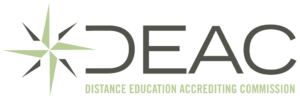Have you ever considered a career where you can make a real difference in the lives of others? If so, the education field might be the perfect fit for you! Offering a variety of paths and opportunities to nurture young minds, education is a dynamic and rewarding profession.
Earning a degree in education is an important first step in becoming a teacher. But even if you don’t plan to teach in a traditional classroom setting, an education degree can be a stepping stone to a wide variety of careers in education, including education administration, special education, or even social work.
Exploring Promising Career Paths in Education
After thorough analysis and consideration of various factors, we present the latest rankings for some of the most promising career options in the field of education, highlighting those with potentially higher earning potentials. Here are some notable selections:
Instructional Coordinator
This role, encompassing various titles such as curriculum specialist, instructional coach, or director of instructional material, plays a pivotal role in supporting educators and integrating cutting-edge technology into the classroom. Its prominence stems from the increasing demand in response to evolving educational standards. According to the U.S. Bureau of Labor Statistics (BLS), this profession is projected to experience the fastest growth over the next five years.
Qualifying for a curriculum development position typically requires a master’s degree in teaching, educational administration, or curriculum and instruction. Salaries range from $33,520 to $93,340, varying by location and school district budget. Successful candidates exhibit strong communication skills, creativity, analytical prowess, technological proficiency, and excellent writing abilities, serving as crucial contributors to maintaining educational standards amidst continual change.
Special Education Teacher
Special education teachers play a pivotal role in supporting students with diverse needs, offering tailored lesson plans and facilitating progress. Despite the demands, the field offers rewarding opportunities and incomes up to $82,000 annually. Advancement is possible through specialized courses in areas like behavioral therapy, assistive technology, and differentiated instruction, empowering teachers to better meet the needs of exceptional students and advance their careers.
Pursuing a master’s degree in special education can further enhance career prospects and professional development. According to BLS, teachers with advanced degrees often have access to higher-paying positions and increased opportunities for leadership roles within the field of special education.
School Counselor
School counselors play a crucial role in providing support to students as they navigate academic and career decisions, as well as personal and behavioral challenges. With a projected growth rate of 14%, this profession offers substantial opportunities, with an estimated 314,400 job openings by 2018. Requirements typically include a counseling certificate and a master’s degree in education, psychology, or human resources. The average salary falls within the range of $51,050 to $82,330, with steady work schedules and ample room for professional development.
Education Administrator
Education administrators, occupying roles such as deans, principals, or district leaders, oversee various aspects of educational institutions, ensuring smooth operations and fostering a conducive learning environment. Despite the demanding nature of the job, administrators enjoy competitive salaries, with annual earnings potentially exceeding $160,500. While a master’s degree is often sufficient, a doctoral degree, particularly in organizational leadership, may enhance prospects for advancement.
K-12 Teacher
At the core of the education system are K-12 teachers, responsible for instructing students across various subjects and grade levels. With salaries ranging from $49,140 to $80,970, and abundant growth opportunities, this profession remains integral to the educational landscape. While a bachelor’s degree and state licensure are typically required, the impact of teachers extends far beyond the classroom, encompassing mentorship and leadership roles within the school community.
Elementary Teacher
Elementary educators play a crucial role within the educational framework, nurturing the academic foundations and behavioral expectations of young learners. Guiding these students demands specialized training, empathy, and unwavering patience. In addition to academic instruction, elementary teachers oversee the overall well-being of their students during school hours. Collaboration with fellow educators, support staff, and administrators is essential to cultivate conducive learning environments.
According to BLS, kindergarten and elementary school teachers earn a median annual salary of $60,660. Advancement opportunities for elementary educators include pursuing master’s degrees, obtaining additional certifications, or achieving national board certification, enhancing their competitiveness in the job market.
Empowering the Next Generation
The world of education is constantly evolving, and educators play a crucial role in shaping the future. Whether you’re drawn to nurturing young learners in the early stages of development or inspiring and guiding students as they navigate their academic journeys, there’s a path waiting for you.
Continuous Learning and Growth
Investing in your own professional development is vital in this dynamic field. By pursuing advanced degrees, specialized certifications, or professional development opportunities, you can enhance your skills, expand your knowledge base, and ultimately make a greater impact on the lives of your students.
Acacia University: Your Partner in Education
Acacia University is dedicated to empowering educators like you. We offer a diverse range of education programs and professional development opportunities designed to elevate your expertise and equip you with the knowledge and skills needed to thrive in your chosen field. Whether you’re seeking to advance your career, explore a new area of education, or simply stay current on best practices, Acacia University has the resources and support to help you achieve your goals.













